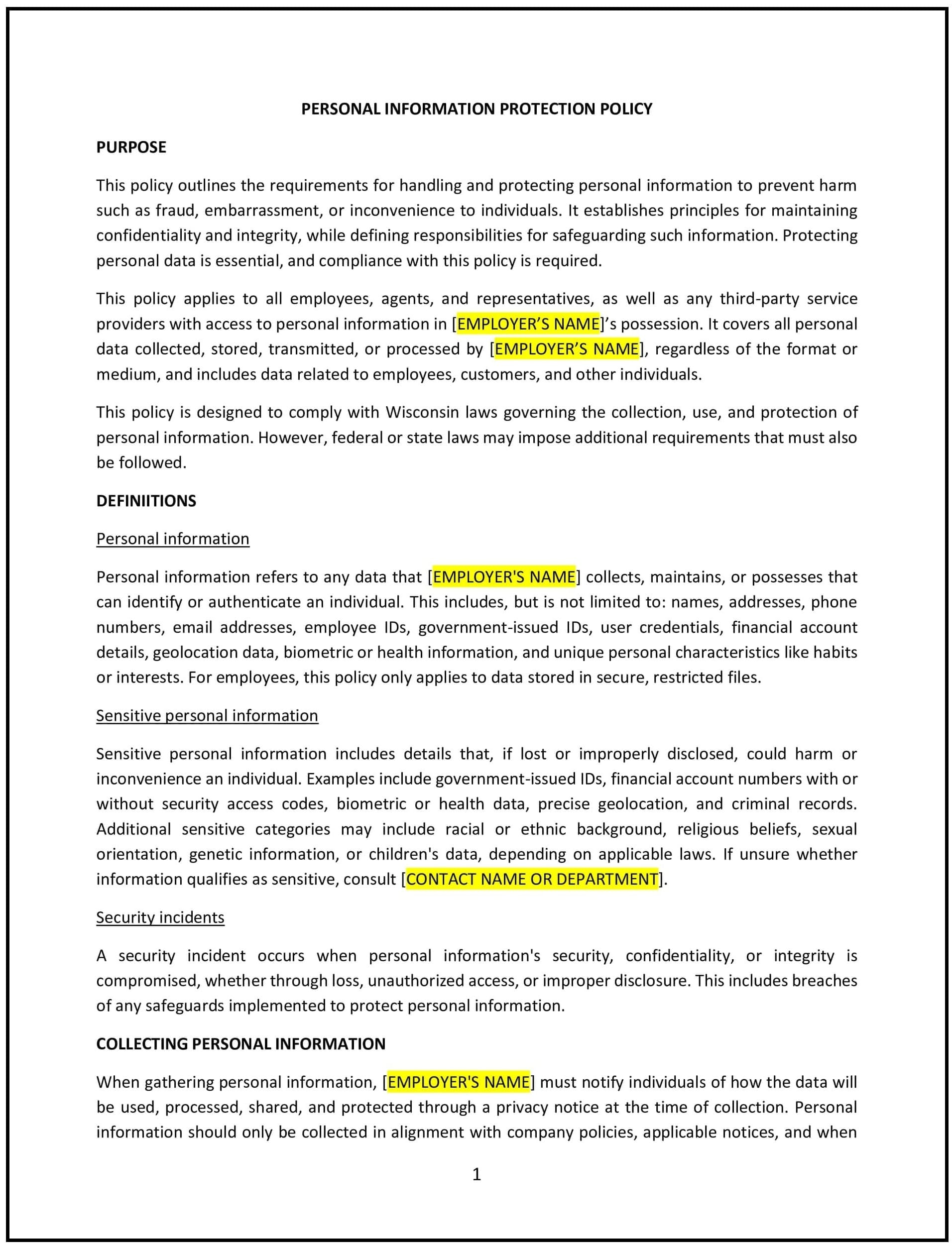Personal information protection policy (Wisconsin): Free template
Got contracts to review? While you're here for policies, let Cobrief make contract review effortless—start your free review now.

Customize this template for free
Personal information protection policy (Wisconsin)
A personal information protection policy helps Wisconsin businesses safeguard employees' and customers' personal information, supporting compliance with state and federal privacy laws. This policy outlines the company’s procedures for handling, storing, and protecting personal data, as well as guidelines for reporting breaches and ensuring confidentiality.
By implementing this policy, businesses can enhance trust, reduce risks of data breaches, and help achieve compliance with data protection regulations.
How to use this personal information protection policy (Wisconsin)
- Define personal information: Clearly identify what constitutes personal information, such as names, addresses, social security numbers, financial data, health information, and other sensitive data.
- Outline data collection procedures: Specify how personal information will be collected, ensuring that it is done lawfully and with proper consent when required.
- Set data storage and access protocols: Detail how personal information will be securely stored, who will have access to it, and what security measures (e.g., encryption, password protection) will be in place.
- Establish data retention guidelines: Define how long personal information will be retained and the process for securely disposing of data that is no longer needed.
- Implement employee training: Provide training for employees on how to handle personal information securely and understand their role in data protection.
- Address breach procedures: Outline the steps the company will take in the event of a data breach, including notifying affected individuals and authorities as required by Wisconsin and federal laws.
- Monitor compliance: Regularly review and update the policy to ensure compliance with changes in privacy laws and industry standards.
Benefits of using this personal information protection policy (Wisconsin)
This policy offers several benefits for Wisconsin businesses:
- Improves legal compliance: Helps the business comply with Wisconsin and federal privacy laws, such as the Wisconsin Consumer Protection Act and HIPAA, avoiding penalties and legal issues.
- Protects customer and employee trust: Safeguarding personal information builds trust with employees, customers, and other stakeholders.
- Reduces risk of data breaches: By outlining secure handling and storage procedures, the policy helps prevent unauthorized access to sensitive data.
- Enhances business reputation: Demonstrating a commitment to data protection enhances the company’s reputation as a responsible and trustworthy organization.
- Improves operational efficiency: Clearly defined procedures for handling personal data help streamline data management and ensure consistency across the organization.
Tips for using this personal information protection policy (Wisconsin)
- Communicate the policy clearly: Ensure that all employees understand their responsibilities under the policy and the importance of protecting personal information.
- Regularly audit data security practices: Conduct regular audits to identify vulnerabilities and ensure the proper protection measures are in place.
- Provide ongoing training: Offer training sessions to employees on data protection practices and emerging threats, such as phishing or identity theft.
- Implement strict access controls: Restrict access to personal information to authorized personnel only and ensure that employees’ access levels are appropriate to their role.
- Review and update the policy: Regularly update the policy to ensure it complies with changes in privacy laws and industry standards, such as the CCPA or GDPR.